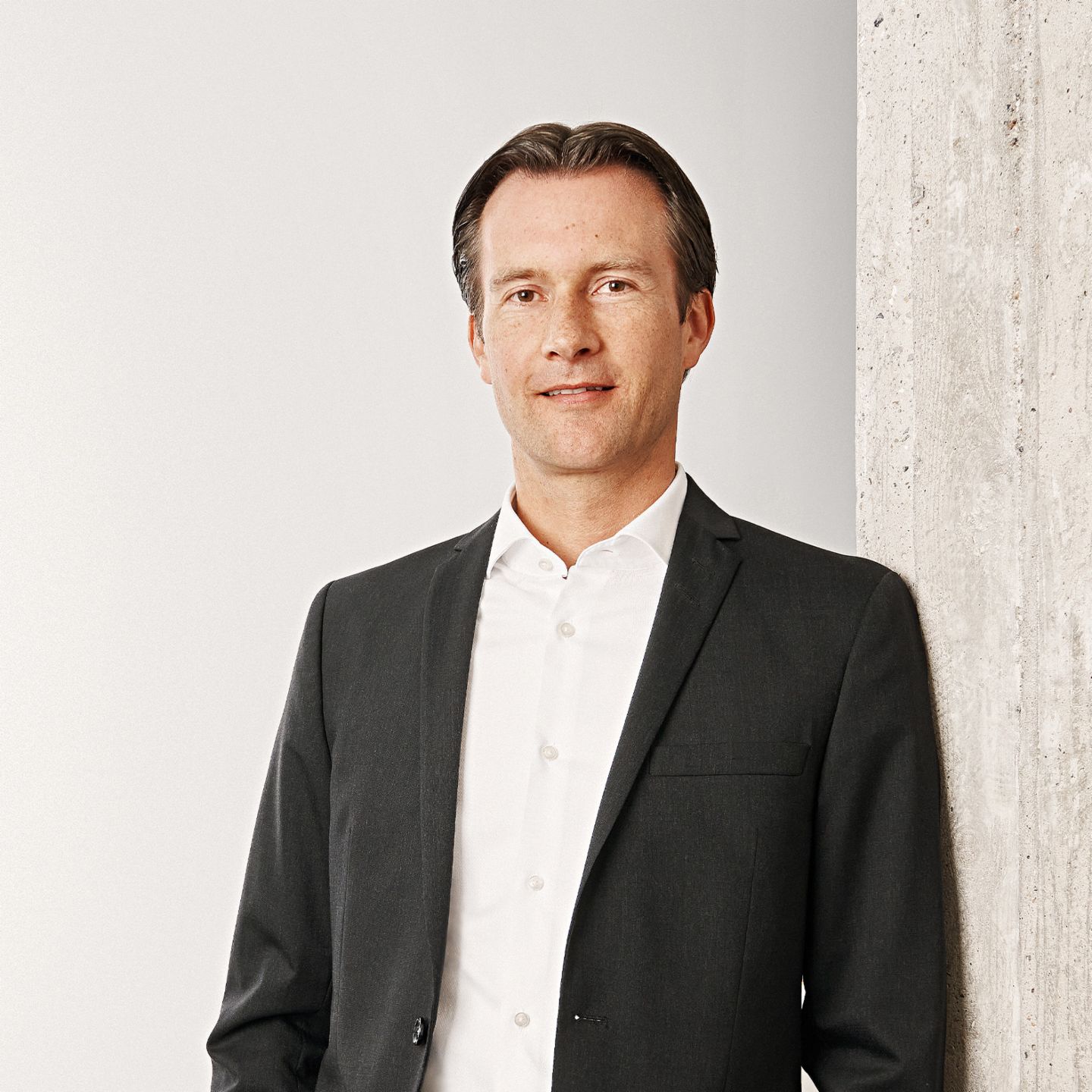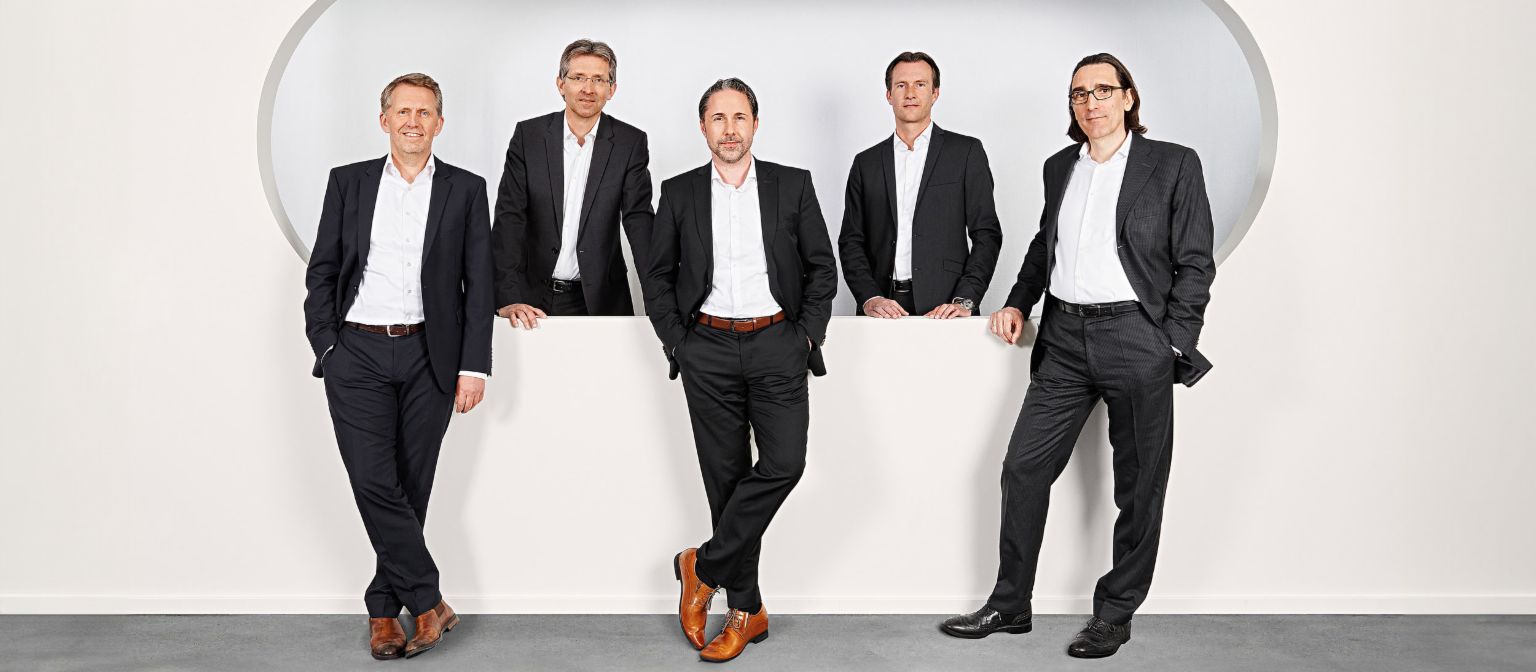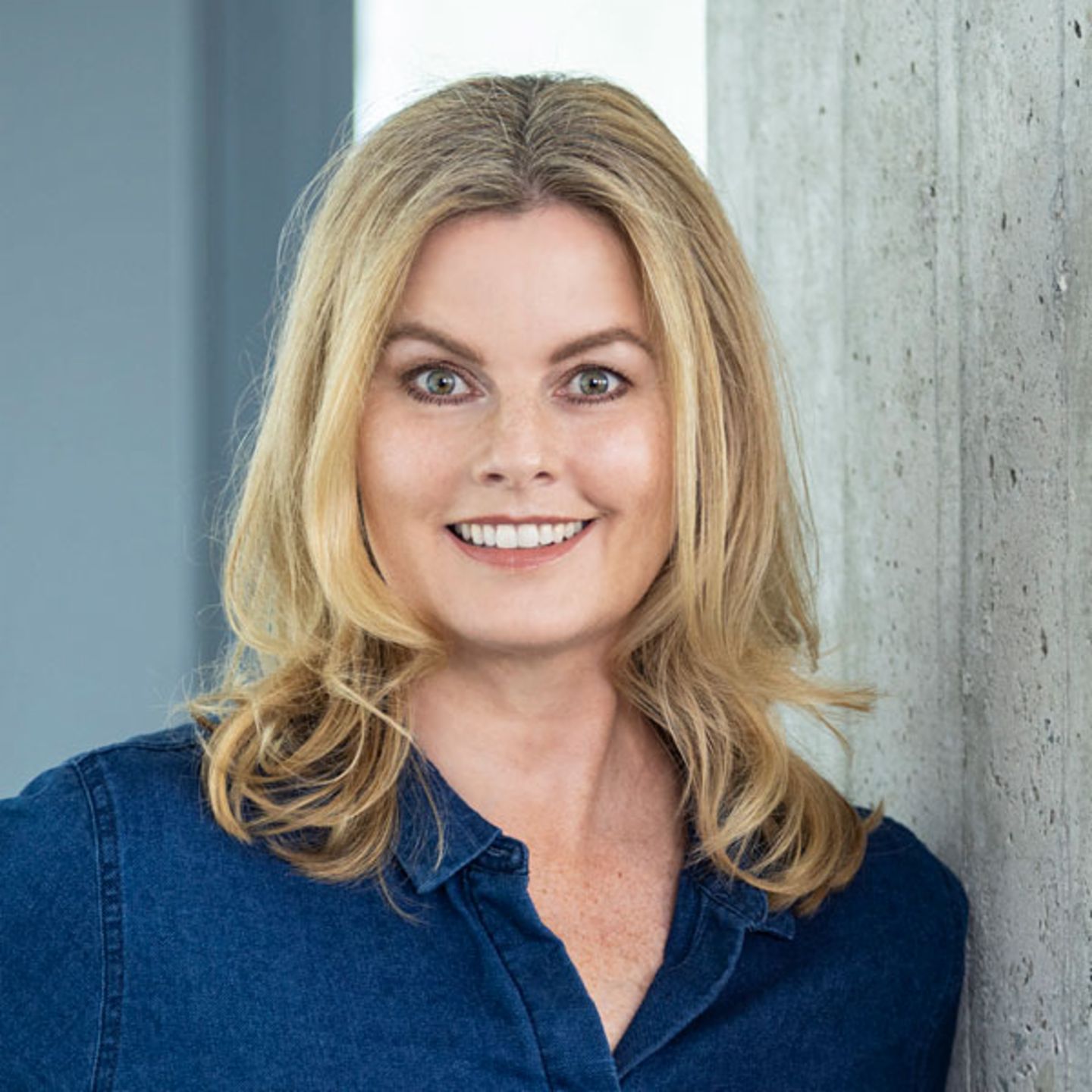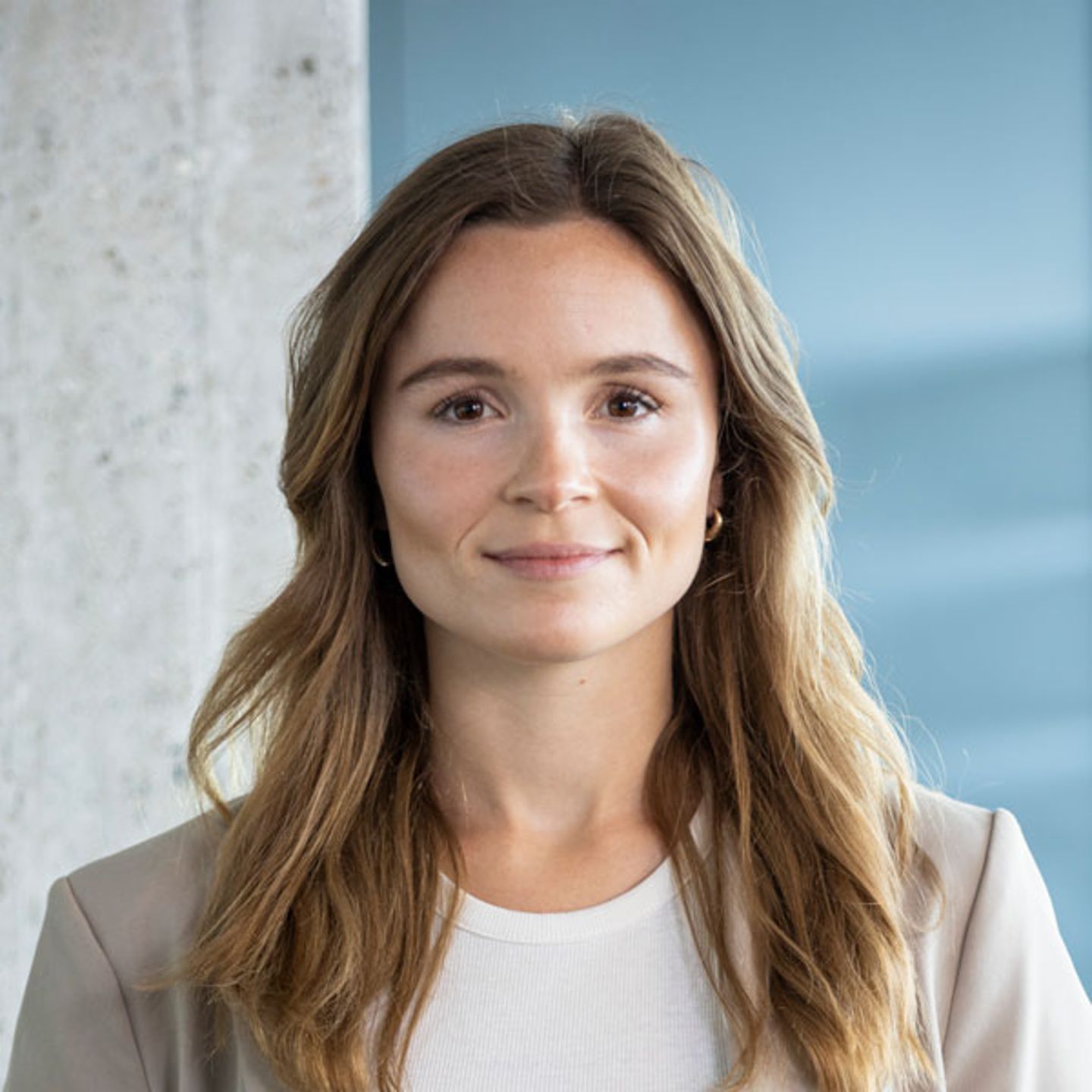- In the 2022/23 financial year, the EOS Group increased its earnings and investment volume.
- International collaboration, digitalization and diversity are the reasons behind the company’s success.
- A commitment to social issues and sustainability is becoming increasingly important.
These issues were explored in an interview with CEO Marwin Ramcke and board members Justus Hecking-Veltman (CFO), Dr. Andreas Witzig, responsible for Western Europe, Carsten Tidow, in charge of Eastern Europe, and Andreas Kropp, responsible for the German market.
The EOS Group closed fiscal 2022/23 with a result of EUR 446 million (EBITDA) and extensive investments amounting to EUR 1.2 billion. These are significant increases compared with the year prior. Was that predicted?
Marwin Ramcke:
Given the difficult international political and macroeconomic situation this was not expected. Since the beginning of 2022, all our lives have been dominated by the issues of war, energy crisis and inflation. It was hard to predict how things would develop. Another factor for me personally was that I took on the role of CEO at the start of 2022. That we would achieve such a result at the end of the financial year in such troubled times was at that point inconceivable. This gives me reassurance that in the EOS Group I am surrounded by people who are prepared to take on challenges and tackle them successfully with ambition and passion.
Given the difficult international political and macroeconomic situation this was not expected. Since the beginning of 2022, all our lives have been dominated by the issues of war, energy crisis and inflation. It was hard to predict how things would develop. Another factor for me personally was that I took on the role of CEO at the start of 2022. That we would achieve such a result at the end of the financial year in such troubled times was at that point inconceivable. This gives me reassurance that in the EOS Group I am surrounded by people who are prepared to take on challenges and tackle them successfully with ambition and passion.
Which factors have led to this positive result?
Marwin Ramcke:
First and foremost our employees, whom I would like to take this opportunity to expressly thank for all their hard work and commitment. Without them, this outcome would not have been possible.
Thanks to their dedication, we have been able to significantly expand the purchase of debt portfolios, even in markets where we had experienced difficulties in the past. Moreover, they have tapped into new investment opportunities. One example is the collaboration with the World Bank subsidiary IFC, where we are joining forces to acquire secured receivables in Eastern Europe.
Justus Hecking-Veltman:
An additional factor is that our NPL (non-performing loans) portfolio is highly diversified and includes secured and unsecured receivables and real estate in more than 20 countries. This gives our Group enormous stability, because we are not dependent on individual markets. Our many years of expertise as a purchaser of NPL portfolios, but also our patience in some markets, have paid off this year, so that we were able to invest the unusually high sum of EUR 1.2 billion. And here too, it must be said that our international teams have once again done an outstanding job.
First and foremost our employees, whom I would like to take this opportunity to expressly thank for all their hard work and commitment. Without them, this outcome would not have been possible.
Thanks to their dedication, we have been able to significantly expand the purchase of debt portfolios, even in markets where we had experienced difficulties in the past. Moreover, they have tapped into new investment opportunities. One example is the collaboration with the World Bank subsidiary IFC, where we are joining forces to acquire secured receivables in Eastern Europe.
Justus Hecking-Veltman:
An additional factor is that our NPL (non-performing loans) portfolio is highly diversified and includes secured and unsecured receivables and real estate in more than 20 countries. This gives our Group enormous stability, because we are not dependent on individual markets. Our many years of expertise as a purchaser of NPL portfolios, but also our patience in some markets, have paid off this year, so that we were able to invest the unusually high sum of EUR 1.2 billion. And here too, it must be said that our international teams have once again done an outstanding job.

International cooperation is not a buzzword at EOS but something that we put into practice every single day.
Carsten Tidow
Member of the EOS Group’s Board of Directors responsible for the region of Eastern Europe
How has the business performed in the various regions?
Carsten Tidow:
In Eastern Europe, we achieved the best result in the company’s history in the last financial year. With an investment volume of just under EUR 400 million, we were also able to build on our high figure from the year before. A good example is Bosnia, where we heavily expanded the secured debt business. One of my personal highlights is the Greek market, which for a long time was considered problematic for us. Thanks to an outstanding team effort, we were able to acquire a large unsecured NPL package in Greece. I would also like to single out the partnership with the World Bank subsidiary IFC, with which we are strengthening our activities as a sustainable investor on the NPL market. When selecting and processing NPLs, particular consideration is given to environmental, social and governance (ESG) aspects. These last two projects are good examples of how international cooperation is not a buzzword at EOS but something that we put into practice every single day.
In Eastern Europe, we achieved the best result in the company’s history in the last financial year. With an investment volume of just under EUR 400 million, we were also able to build on our high figure from the year before. A good example is Bosnia, where we heavily expanded the secured debt business. One of my personal highlights is the Greek market, which for a long time was considered problematic for us. Thanks to an outstanding team effort, we were able to acquire a large unsecured NPL package in Greece. I would also like to single out the partnership with the World Bank subsidiary IFC, with which we are strengthening our activities as a sustainable investor on the NPL market. When selecting and processing NPLs, particular consideration is given to environmental, social and governance (ESG) aspects. These last two projects are good examples of how international cooperation is not a buzzword at EOS but something that we put into practice every single day.
What is the situation like in Western Europe?
Andreas Witzig:
Equally positive. With investments of more than half a billion euros, we have achieved a very high figure in this region too. Particularly worthy of mention are the markets in France and Spain. But also Portugal, where our national subsidiary was established as recently as 2022. Already, 20 employees are active in the Portuguese NPL market and have been able to complete their first NPL purchases. They genuinely have got off to a flying start. A major factor in this was also the implementation of Kollecto+, our proprietary debt collection software that is already being used in several EOS countries and is creating important synergies. The next stage is to roll out the software in Belgium and Germany.
Equally positive. With investments of more than half a billion euros, we have achieved a very high figure in this region too. Particularly worthy of mention are the markets in France and Spain. But also Portugal, where our national subsidiary was established as recently as 2022. Already, 20 employees are active in the Portuguese NPL market and have been able to complete their first NPL purchases. They genuinely have got off to a flying start. A major factor in this was also the implementation of Kollecto+, our proprietary debt collection software that is already being used in several EOS countries and is creating important synergies. The next stage is to roll out the software in Belgium and Germany.
What is the situation in Germany?
Andreas Kropp:
The German NPL market is the most established of all NPL markets we operate in as a Group. That is why it is also highly challenging. There are a lot of competitors on the market that ensure a high price level for the debt portfolios. This is a reason for us to constantly optimize our processes and costs, which allows us to operate more efficiently and hold our own in the market. In this context too, being connected to Kollecto+ is an important step. In Germany, this process will have been completed in the next two to three years.
The German NPL market is the most established of all NPL markets we operate in as a Group. That is why it is also highly challenging. There are a lot of competitors on the market that ensure a high price level for the debt portfolios. This is a reason for us to constantly optimize our processes and costs, which allows us to operate more efficiently and hold our own in the market. In this context too, being connected to Kollecto+ is an important step. In Germany, this process will have been completed in the next two to three years.
What other issues have shaped EOS in the last year?
Marwin Ramcke:
One factor is definitely our international focus. EOS consists of more than 6,000 individuals in 24 countries. Every one of them brings with them their experiences, abilities, and cultural influences. When you put these people together in a team there are no limits to the resulting creativity. This is how we develop ideas that genuinely make a difference – and that have helped us achieve this good result for EOS.
One factor is definitely our international focus. EOS consists of more than 6,000 individuals in 24 countries. Every one of them brings with them their experiences, abilities, and cultural influences. When you put these people together in a team there are no limits to the resulting creativity. This is how we develop ideas that genuinely make a difference – and that have helped us achieve this good result for EOS.
Along with its financial results, EOS is for the first time publishing a combined annual report and sustainability report based on the Global Reporting Initiative (GRI) standards. Does that mean the topic of CR (corporate responsibility) has become more important?
Marwin Ramcke:
We have always said that for us, debt collection means taking responsibility. Corporate responsibility has therefore been a major issue for a long time, and is set to become even more important. We want to show that we don’t just make announcements, but genuinely strive to become a little better every day. The GRI standards help us to report transparently about how sustainable our actions are and what we are achieving when it comes to CR.
We have always said that for us, debt collection means taking responsibility. Corporate responsibility has therefore been a major issue for a long time, and is set to become even more important. We want to show that we don’t just make announcements, but genuinely strive to become a little better every day. The GRI standards help us to report transparently about how sustainable our actions are and what we are achieving when it comes to CR.
What would be examples of this from the last financial year?
Andreas Kropp:
The fair interaction with defaulting consumers plays a major role in this context. We want to help them become debt-free as quickly as possible. To this end, for example, we use readily understandable language to eliminate barriers to communication, but also offer services that allow them to pay anonymously and at any time. In our German service portal, consumers can also set their own installment rates.
Another area of our responsibility is to continue to develop EOS as an employer. For example, our employees in Germany are able to better reconcile work and leisure time thanks to hybrid working models.
Andreas Witzig:
Our role as an employer also includes retaining employees in the long term. We make sure that they can grow, as a person and as an employee. We have a wide range of offerings and initiatives for this purpose, e.g., the “Masterplan” learning platform that is available to all personnel, or the NXT Talent Management Program, which last year offered 92 talented employees from 17 countries individualized opportunities for development. But our employees themselves have also implemented a diverse range of sustainable projects to benefit the company, the environment or the community, from indoor gardens to financial education for children.
The fair interaction with defaulting consumers plays a major role in this context. We want to help them become debt-free as quickly as possible. To this end, for example, we use readily understandable language to eliminate barriers to communication, but also offer services that allow them to pay anonymously and at any time. In our German service portal, consumers can also set their own installment rates.
Another area of our responsibility is to continue to develop EOS as an employer. For example, our employees in Germany are able to better reconcile work and leisure time thanks to hybrid working models.
Andreas Witzig:
Our role as an employer also includes retaining employees in the long term. We make sure that they can grow, as a person and as an employee. We have a wide range of offerings and initiatives for this purpose, e.g., the “Masterplan” learning platform that is available to all personnel, or the NXT Talent Management Program, which last year offered 92 talented employees from 17 countries individualized opportunities for development. But our employees themselves have also implemented a diverse range of sustainable projects to benefit the company, the environment or the community, from indoor gardens to financial education for children.
.jpg/jcr:content/Portrait_Marwin_Ramcke_CEO_of_EOS_I_(1).jpg)
Our employees are our greatest driver of innovation and the key reason for our success.
Marwin Ramcke
CEO of the EOS Group
What is the forecast for the coming financial year?
Justus Hecking-Veltman:
Our goal is to continue to buy debt portfolios and put money back into the economy. In view of the ongoing political and macroeconomic uncertainties, we are sticking with our proven approach: to be patient and to manage our business responsibly.
Carsten Tidow:
We won’t rest on our laurels despite the successful year, but will continue to look to the future. In this context, a key factor is that we are establishing a growth mindset. We want to encourage our employees to be open to new things and occasionally break out of their own comfort zones. An excellent example of this is the innovation competition that produced so many exciting ideas last year. We are also going to continue to step up our international collaboration and best practice exchanges.
Marwin Ramcke:
I wholeheartedly agree with Carsten, and as I have said before: Our employees are our greatest driver of innovation and the key reason for our success. The macroeconomic environment will continue to be difficult in 2023/24 and will present us with new challenges. Our goal for fiscal 2023/24 is to maintain or build on our top-3 position in the markets that are relevant to us. If we keep doing what we have been doing so far, I am confident that we will also achieve this.
Our goal is to continue to buy debt portfolios and put money back into the economy. In view of the ongoing political and macroeconomic uncertainties, we are sticking with our proven approach: to be patient and to manage our business responsibly.
Carsten Tidow:
We won’t rest on our laurels despite the successful year, but will continue to look to the future. In this context, a key factor is that we are establishing a growth mindset. We want to encourage our employees to be open to new things and occasionally break out of their own comfort zones. An excellent example of this is the innovation competition that produced so many exciting ideas last year. We are also going to continue to step up our international collaboration and best practice exchanges.
Marwin Ramcke:
I wholeheartedly agree with Carsten, and as I have said before: Our employees are our greatest driver of innovation and the key reason for our success. The macroeconomic environment will continue to be difficult in 2023/24 and will present us with new challenges. Our goal for fiscal 2023/24 is to maintain or build on our top-3 position in the markets that are relevant to us. If we keep doing what we have been doing so far, I am confident that we will also achieve this.
Would you like more information? Feel free to contact us!
EOS Holding GmbH
Corporate Communications & Marketing
Lara Flemming
Senior Vice President Corporate Communications & Marketing
Steindamm 71
20099 Hamburg
Carina Bonde
Corporate Communications & Marketing
Phone: + 49 173 2979331
Photo credits: EOS


